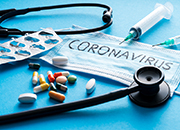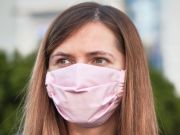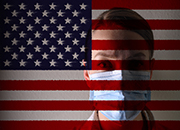
The U.S. National Institutes of Heath announced Saturday that it was stopping a clinical trial of hydroxychloroquine, a drug long supported by President Donald Trump as a possible panacea for COVID-19. “A data and safety monitoring board met late Friday and determined that while there was no harm, the study drug was very unlikely to… read on >






























